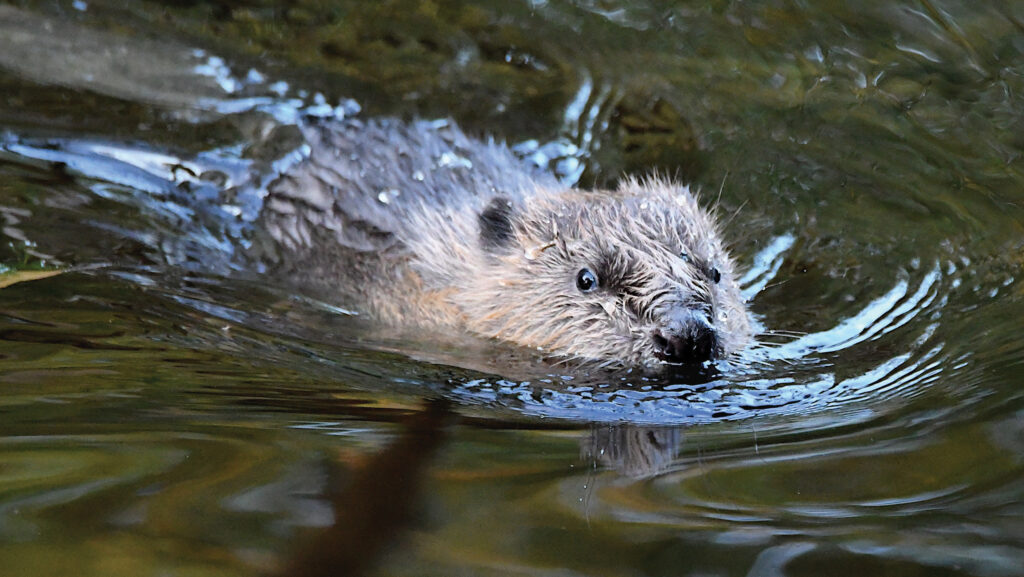Opinion: Beavers can bring more benefits than costs to rural areas
 © Rachel Mallet/ Istockphoto
© Rachel Mallet/ Istockphoto I am a farmer, grazing around 50 Red Poll cattle on the Cambridge commons and selling the beef at our local farmers’ markets and through a doorstep delivery service.
I know as well as the next farmer how difficult it is to navigate the effects of prolonged wet weather, floods and droughts, trying to keep the right number of animals and finish them properly on the grazing available.
See also:
About the author

Angelika von Heimendahl is a beef farmer, grazing Red Poll cattle on the commons in Cambridge, as well as beaver reintroductions manager for The Wildlife Trusts.
That’s why I believe our sector can and must harness the power of nature to help us build resilient farm businesses.
Bringing back beavers is a brilliant example. Beavers were hunted to extinction for their fur, scent glands and, surprisingly, their scaly tails, which were once eaten as fish on Fridays.
Beavers are ecosystem engineers and could be on the frontline of helping farmers combat unpredictable weather patterns, if we let them.
Many farmers experienced massive rainfall this winter and saw crops and soil washed away. We’re also seeing increasing periods of drought.
Having beavers on your land helps to regulate water flow, because they create wetlands that absorb a lot of water in winter, which in turn protects land downstream from flooding.
Conversely, when fields become dry in summer, these wetland areas distribute water slowly into the surrounding landscape.
Hampshire & Isle of Wight Wildlife Trust is consulting local communities about the possibility of reintroducing beavers to the Eastern Yar floodplain, on an island that is notoriously short of water.
Give beavers a bit of water, some greenery and off they go, building their own world made up of small ponds, a lodge and a tree garden – far cheaper than a £80,000 irrigation pond.
They are strict herbivores, don’t transmit disease, and they don’t mind humans or busy places.
Contrary to common belief, beavers do not fell many trees, but prefer to coppice mainly aspen, birch and willow to generate new growth (which is more palatable), creating niche habitats and food for birds and insects.
Beavers live in family groups along rivers, and only young adults between one and two years of age will migrate to find a new territory.
Once habitat capacity is reached, adult females will stop breeding for up to seven years by suppressing ovulation. The young ones from previous years will stay within the family group.
Beavers can cause issues – of course they can – which is why if farmers have to change the way they tend to their fields and meadows, they ought to be given financial support through existing agri-environment subsidy schemes.
It is only fair that if farmers are providing that benefit and cannot sell that benefit to the marketplace, they ought to be paid for that service.
Beavers are easy to monitor, so support systems can be targeted and effective. Some payments, such as for riverbank protections, already exist.
The Wildlife Trusts understand farmers’ concerns and are already successfully working with many landowners to manage any difficulties so everyone can reap the benefits beavers bring.
Devon Wildlife Trust, for example, looks after 60 sets, only three of which need any active management.
In Bavaria – an intensively farmed region – an estimated 26,000 beavers are living alongside humans in a busy landscape, with remarkably few issues to report.
As farmers, we have to think of more than food production and embrace the idea of spinning many plates: crops, livestock, trees, nature, carbon sequestration, water, energy and access from a largely urban population.
Beavers are an easy win – so let’s stop stalling and enjoy the benefits they bring.
